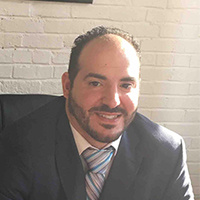 Lehigh County, PA Criminal Lawyers
Lehigh County, PA Criminal Lawyers
Sponsored Law Firm
-
 x
x

Click For More Info:
-
The McGarrigle Law Firm
1500 Walnut Street, 22nd Floor Philadelphia, PA 19102» view mapWhite Collar Crime, Criminal Appeals, DUI&DWI Trial Experience & Zealous Advocacy
The Firm’s devoted attention to your individual concerns, our vast trial experience in all types of criminal matters, and our skillful advocacy will ensure that your rights are protected.
800-934-5330
Sponsored Lawyers
1-10 of 14 matches
Bankruptcy & Debt, Real Estate, Immigration, Criminal, Business
If you are experiencing financial difficulties, you do not have to work through them alone. The Laputka Law Office focuses on your debt/credit related issues. Our clients come from all walks of life. We understand that every client is different and that every client’s problems require individual attention and a personalized solution. Our guarantee to YOU, our client, is that we will offer you the best personalized solution to your problems at prices anyone can afford.
(more)Criminal
As a former Luzerne County Assistant District Attorney, Albert prosecuted many criminal cases before setting his sights on criminal defense and immigration assistance. Albert's years of experience make him an outstanding choice to represent you with all of your legal needs.
(more)



 Daniel McGarrigle Philadelphia, PA
Daniel McGarrigle Philadelphia, PA TestimonialsRecent Reviews
TestimonialsRecent Reviews Contact UsCall or Email
Contact UsCall or Email


